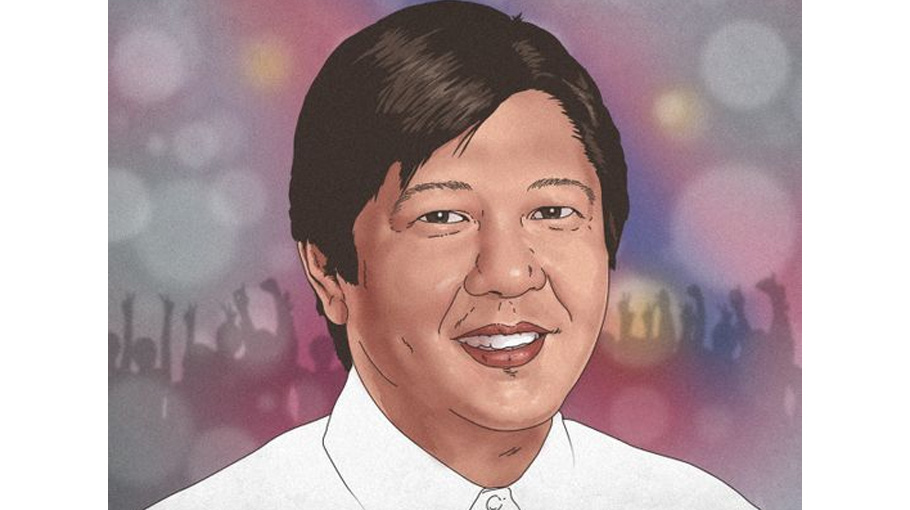Ferdinand Marcos Jr — All in the family
New Philippines president is following in his father’s footsteps. The voters have endorsed

What’s that old saying … the more things change, the more they stay the same? Well that certainly seems to be the case in the Philippines after last week’s presidential election.
Were this a trivia question from the 1990s and you were asked, who is the president of the Philippines, the right answer back then was. Ferdinand Marcos. And now, four decades later, the answer is still the same, except that we’re referring to the only son of the former leader.
“Bongbong” Marcos Jr will lead the Philippines for the next six years in a remarkable return to power for the archipelago nation’s most famous dynastic family.
And the election wasn’t even close. Marcos Jr secured more than 31 million votes, easily enough for a majority. His victory effectively means that 92-year-old Imelda Marcos can watch over the resurrection of her family’s name and return to power some 36 years after her husband’s regime was overthrown.
For human rights campaigners who were concerned with the tough policies
of the outgoing president, Marcos Jr has indicated that he is willing to continue
some of the tactics, ensuring that police and others in the security forces are
protected from prosecution
The 64-year-old is the second child and only son of Ferdinand Sr and Imelda and was just eight years old when his father first ran for the presidency at a time when Communist insurgencies threatened much of the greater Asian area, the war in Vietnam was in full swing, and there were infiltration threats to Cambodia, Laos, Thailand, Malaysia and Indonesia, as well as Communist parties on this rise.
It was a nation too that was still trying to rebuild from the aftermath of the Second World War, was shaped by Cold War influences, and was a vital base for US forces in the vast expanses of the wider Pacific region.
Return of the Marcos
Under Marcos’ presidency, the family accumulated immense wealth. The young Marcos was educated at an elite British boarding school and took his first role in political office at the age of 23, becoming vice-governor of Ilocos Norte. At the same time, he was attending the Ivy League Wharton Business School in Pennsylvania. He never completed the degree.
When the family was eventually forced into exile in 1986 after 21 years in the presidential palace, they repotedly did so with hundreds of crates stacked with gold bullion and priceless art.
During the campaign, renewed allegations carried little weight with Philippine voters. The reality is that three quarters of the voters simply are not old enough to remember his father’s authoritarian rule, and time has a way of blunting the more negative details.
As one political analyst noted, even if Marcos’ Jr voters are aware of the family’s past, they support him, nevertheless.
But his victory also has to do with some deft electioneering. The younger Marcos teamed up with Sara Duterte, the daughter of outgoing president Rodrigo Duterte in a movement that has combined their families popularity in the Marcos stronghold of the North and the Duterte heartland of the south.
Their campaign for president and vice-president overwhelmed the opposition, with outgoing Vice-President Leni Robredo a distant second and boxing champion Manny Pacquiao way back in third place.
Without doubt, the rehabilitation of the Marcos name happened with the revisionist capabilities of TikTok and other social media platforms, presenting a more sanitised version of the Marcos years that academics or scholars might otherwise pen. If anything, the election in the Philippines shows that recent history can indeed be refocused through prisms.
Marcos Jr campaigned on building on the policies and legacies of the outgoing President Duterte, one that includes a “build, build, build” infrastructure programme and moving the Philippines closer to China. Indeed, tensions in the South China Sea along with Beijing’s ability to underscore economic growth in the region make that, for many voters, a more natural fit than relying on support from Washington.
Under Duterte, Manila has altered its posture towards Beijing, focusing on building closer investment ties with China.
After his win, the Macros campaign issued a statement that read: “In historic numbers, the people have used their democratic vote to unite our nation.
This is a victory for all Filipinos, and for democracy. To those who voted for Bongbong, and those who did not, it is his promise to be a President for all Filipinos. To seek common ground across political divides, and to work together to unite the nation.”
He campaigned on a platform of “unity,” promising more jobs, lower prices and more investment in agriculture and infrastructure.
“As you can imagine, the economic managers are going to be critical for the next several years because of the pandemic and economic crisis, something that we are looking at very carefully,” he said in an interview after his victory was secured.
The reality is that Macros Jr has won a huge mandate — effectively meaning that whatever doubts may linger over his father’s presidency, this is now a new era in the Philippines and the region.
But he also inherits a nation that is reeling from the effects of the pandemic. After two years of lockdown, seven out of 10 families there don’t have much savings — meaning economic action must be far-reaching and swift.
For human rights campaigners who were concerned with the tough policies of the outgoing president, Marcos Jr has indicated that he is willing to continue some of the tactics, ensuring that police and others in the security forces are protected from prosecution.
So yes, the more things change, the more they stay the same.
Mick O’Reilly is Foreign Correspondent at Gulf News. Source: Gulf News



